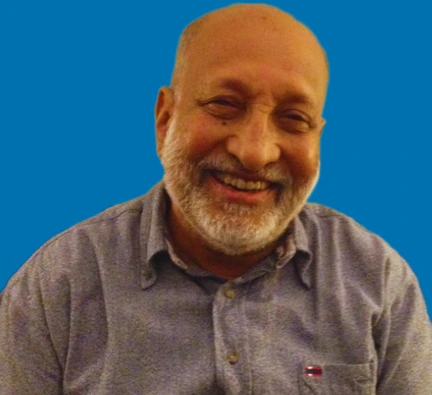LIBERAL DEMOCRACY ISN’T serving Americans very well, not, at any rate, in their well-being. Nicholas Kristoff is making the point poignantly. America’s “greatest threat,” writes the Pulitzer-winning New York Times columnist, isn’t Communist China or authoritarian Russia “but our underperformance at home.”
Kristoff cites data from several surveys to support his argument. Fifteen-year-old American kids can’t do as well in math as do their peers in many in less developed countries such as Latvia, Poland and Russia. One in five of these children can’t read as well as 10-year-olds do in many other countries. Even more depressing, America is “one of only three countries, out of 163, that went backward in well-being over the last decade.”
Many Americans would, of course, still argue that they are blessed with “the world’s greatest democracy,” which is “a beckon of freedom” for the rest of the world. I travel a lot and one of my favorite haunts is Kolkata (Calcutta), India, the hub of my native Bengali culture. Two years ago, my friend Susnata Sen, who teaches history at Rabindra Bharati University in Kolkata, asked me, in jest, if Trump had “lost his way to a lunatic asylum” and ended up at the White House! In 2008, in Doha, Qatar, a stringer for the Japanese newspaper Asahi Shimbun inquired of me “how in the world did you succeed in getting W” as our president?
I told them both that democracy is “a gift of the Enlightenment,” which had derailed through the “corruption of another gift of the Enlightenment,” liberalism.
Liberalism was originally conceived as the ideology of freedom of the individual from the tyranny of monarchy and religious bigotry and prejudices. The idea was that the human mind, disabused of these strictures and prejudices, would be free to inquire rationally about the world around it, develop the sciences and technology and pursue pleasure and happiness. It sounded as a momentous idea – the greatest message to mankind since Jesus’ Sermon on the Mount and Muhammad’s Farewell Sermon (in which the Islamic prophet abolished blood revenge, forbade usury, reminded men of their rights and responsibilities toward women and women’s rights over them, warned men against evil conduct, and so forth).
The one thing that was missing in the Enlightenment missive was, however, moral duty. John Locke, Voltaire or John Stuart Mill didn’t talk about men’s and women’s responsibilities to their kin and community. And that is reflected in the ideology of capitalism and free enterprise, whose corruption has been all but completed by neoliberalism. Neoliberalism, the latest twist to capitalism, calls for the elimination of price controls, deregulation of capital markets, lowering of trade barriers, etc., unleashing the forces of wanton plunder and pillage on society, regardless of the poverty, privation and hardships they visit upon the masses. It’s all about making money and pursuing individual pleasure, caring little about kin, community, humanity or its fulfillment.
In 1991 I was researching U.S. foreign policy options in Arab societies with a fellowship from the University of Chicago Middle East Center and hired a research assistant from Washington suburbs. Abdul Matin (not his real name) was a hardworking immigrant from my native India. He took a second job and got his wife to work for another family to make ends meet. They had three children, born in India and Kuwait. One of them was a toddler, and the two others helped their parents around the house besides toiling over their hard schoolwork.
At my Washington office, an American friend used to drop by for coffee and chitchat and sometimes complained about his son not doing well in school because of an under-funded school with inadequately qualified teachers in a rather depressed area in the nation’s capital.
One morning Matin showed up for work with a smile stretching from one ear to the other. He showed me his young son’s school grade released the previous day. The boy got all A’s and just one B.
I congratulated Matin. “You have a brilliant boy!” I said.
“Well,” he replied, “most of the credit goes to my daughter,” he said. Matin had told the children that education was “the most important thing” for them to do in life. Every day his daughter made sure her younger brother did his homework diligently and checked out each of his report cards. Matin’s wife wasn’t educated enough to check up on the boy’s progress in school. And the girl “reports any problem” the boy had to the parents, Natin said.
I saved a copy of the boy’s grade report and showed it to my American friend on his next visit. I told him how the family helped the Hindi-speaking boy do so well in an English-medium school.
“I just have to get serious about my kid’s school work,” he said, pensively. “He has to cut back on his Nintendo games.”
- Mustafa Malik worked three decades as a journalist for American newspapers and researcher of U.S. think tanks. He now lives in Bangladesh.
.

